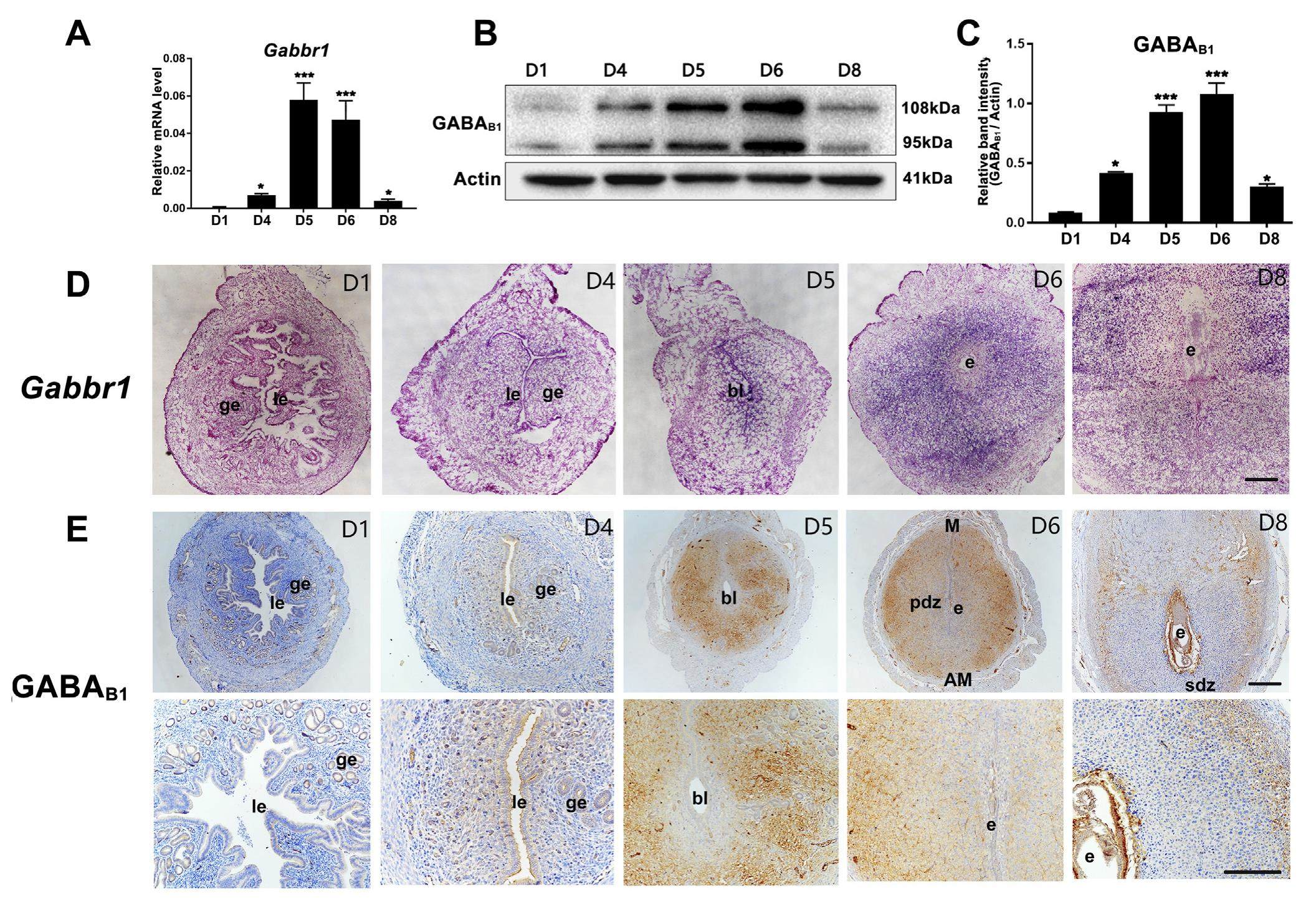
Unique and independent role of the GABAB1 subunit in embryo implantation and uterine decidualization in mice


Embryo implantation and decidualization are crucial for successful pregnancy, which include multiple genes and signaling pathways, while the precise mechanism regarding embryo implantation and decidualization has yet to be explored. The GABA which activates GABAA or GABAB receptors has been found playing an important role in early pregnancy. Here we seek to investigate whether GABAB receptors participate in embryo implantation in mice. This study first characterized the spatiotemporal expression pattern of GABAB receptors in the uterus during the peri-implantation period and found that GABAB1 expression was drastically upregulated in stromal cells on days 4-6, a period of embryo implantation and early stages of decidualization. Embryo delayed implantation and oil-induced decidualization models were further used to con firm that the GABAB1 was associated with embryo implantation and decidualization. We also found estrogen or progesterone had no directly effect on expression of GABAB1 in ovariectomized model. Because we were unable to detect significant GABAB2 which couples with GABAB1 to form whole GABAB receptors, and the agonist and antagonist of whole GABAB receptors had weak effect on the proliferation and differentiation of stromal cells as well, we excluded the possibility whole GABAB receptors function, and concluded it should be non-classical signals of GABAB1 involving in embryo implantation and decidualization. Future studies should focus on investigating the roles and mechanisms of GABAB1 during embryo implantation and decidualization.
